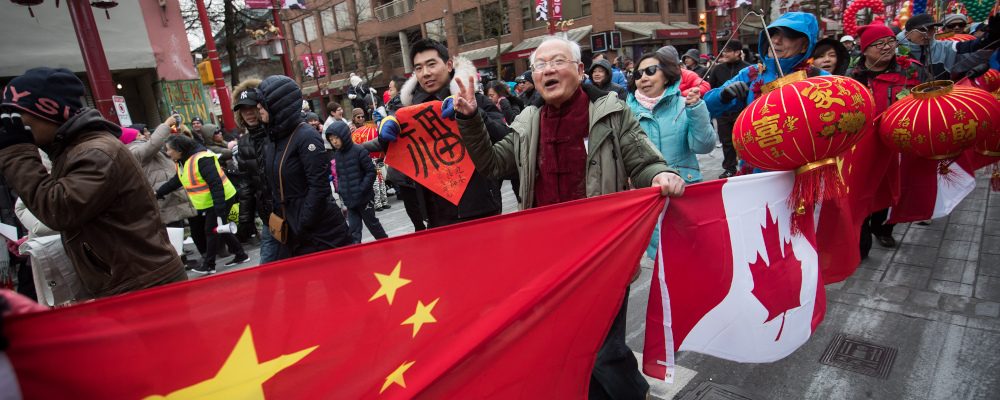In recent weeks, Canadian political debate has been gripped by allegations of interference by the Chinese Communist Party in several ridings in our 2019 and 2021 federal elections.
I ran as the Conservative candidate in 2021 in one of those ridings: Scarborough-Agincourt.
I never saw any interference during my campaign and no one has brought anything to my attention since it ended. I’m confident that our elections, mine included, were neutral, honest, and accurate. My opponent won fair and square.
Regrettably, the larger debate lacks a sense of proportion. The rhetoric is becoming overheated, potentially exaggerating the problem, misleading voters about the quality of our elections, and most disturbingly, sowing mistrust towards an ethnic group.
Contrary to the prime minister’s claim, it’s not racist to investigate foreign meddling but we must be circumspect and cautious in our statements. To the extent there was any interference, we should let the police handle it.
In 2021, the Conservative Party offended large portions of the Chinese-Canadian community. From the start of my candidacy, my campaign team and I were aware of this challenge. Granted, there are some very serious issues with the government of China and President Xi’s leadership that must be confronted, but some Conservative MPs had been too strident in their language, came across as obsessively anti-China, and brushed the line of intolerance. Many Chinese Canadians were offended by this.
Being informed and discerning citizens, they voted accordingly. We Conservatives can’t blame meddling by China for our losses.
Innocent Chinese Canadians can be collateral damage
We must also be aware that the constant drumbeat of anti-China accusations could arouse anti-Asian sentiment in Canada. About 1.8 million Canadians, five percent of the population, are of Chinese ancestry, whose original ethnic homeland generally speaking is China. No one needs to be reminded of their contribution to this country.
Anti-China rhetoric may be twisted by the unscrupulous and unhinged, or misinterpreted by many. When we create fears of an “enemy within”, that Canada is rife with Chinese spies in our universities, businesses, and governments, then we run the risk that innocent Canadians of Chinese descent fall under suspicion and become the victims of prejudice. The Chinese-Canadian community is rightly troubled by the recent rise of anti-Asian incidents. Alarmism on this issue only worsens the problem.
This does not mean that our law enforcement should be compromised by diaspora politics. But we must calibrate our words and intensity levels so as not to imperil a racial minority.
Local guys on a power trip?
Was the alleged influence campaign ordered by a high-level official in Beijing? Or was it the independent action of a low-level local official who wanted to be a big man by inserting himself into the process?
Canadians may be surprised to learn that candidates for Parliament receive astonishingly little field support from their parties. You’re on your own. Volunteers, money, and resources are scarce on the ground. You need all the help you can get. A long time ago, into this vacuum stepped local organizers from ethnic groups who could mobilize their networks.

For decades now, party politics in our big cities have been the purview of ethnic organizers from many different communities. Riding-level campaigns of all parties are propelled this way.
On the upside, new Canadians enter the political process, inject energy and diversity, and shake up the old order. On the downside, campaigns have become the clients of those who control lists of potential members and volunteers, almost exclusively drawn from ethnic communities. They are the mother’s milk to campaigns desperate for help. Candidates must navigate delicate foreign policy positions involving the mother countries, often between conflicting segments of the same diaspora.
Bouncing from one campaign to another across the city, the list holders market themselves as movers and shakers who claim the power to deliver votes for your nomination, email addresses for your marketing, volunteers to hammer in signs, and donors to provide money. Stitch together enough lists and you win your party’s nomination.
The alleged interference campaign by local Chinese officials bears all these hallmarks. Canada’s politicians shouldn’t feign surprise at this. It’s easy to see how a few wannabe players, list holders, and poll captains got carried away and crossed the line. Maybe there was a connection to the Chinese consulate or maybe not, but the current indignation reminds one of the police chief in Casablanca who ironically declares that he’s shocked that there’s gambling going on at Rick’s Cafe.
Mitigating this problem requires parties to re-examine their nomination processes and timelines, membership requirements, list sharing, and field support operations. Candidates shouldn’t be left alone and desperate for help.
Let cooler heads prevail
We don’t need yet another time-consuming, expensive public inquiry. If CSIS has credible evidence of criminal activity then they should hand it over to the RCMP and let them deal with it. If these things happened and the evidence is solid, then why no diplomatic expulsions and no arrests? These questions must be answered by CSIS and the RCMP.
If agents of the Chinese Communist Party engaged in criminal activity with Liberal organizers, threatened community members, or pressured foreign students to support one party or the other, then our police and intelligence agencies should do their job and act decisively.
In the meantime, our leaders and officials should provide a calm, measured response, one that is effective, supports our honest elections, and more importantly, protects innocent Canadians.
Recommended for You

Need to Know: Legacy media has a diversity problem

‘A celebration of the spirit of Alberta’: Ryan Hastman on the political, economic, and cultural importance of the Calgary Stampede

‘Can we actually be an independent country?’: Michael Ignatieff on the 60th anniversary of Lament for a Nation

Fred DeLorey: Why the NDP may be in even bigger trouble than we think



